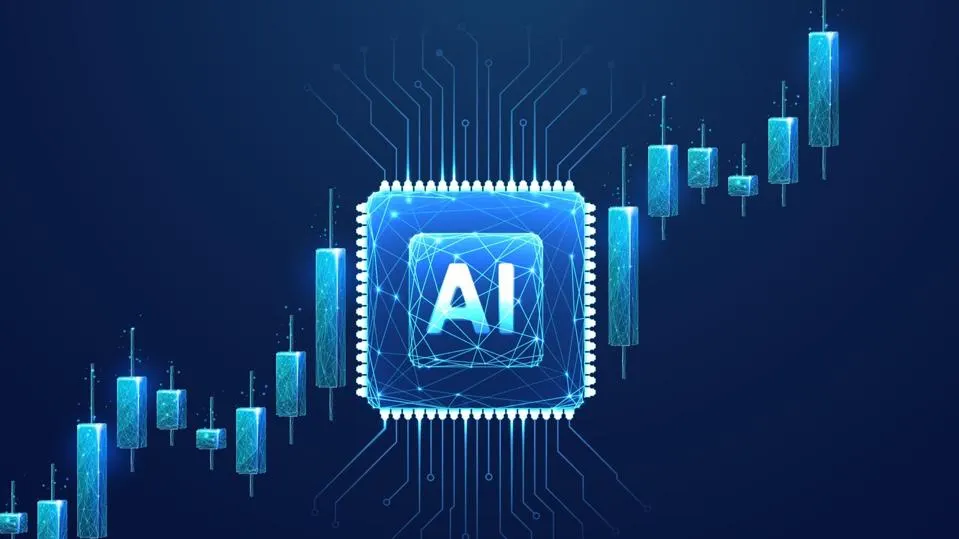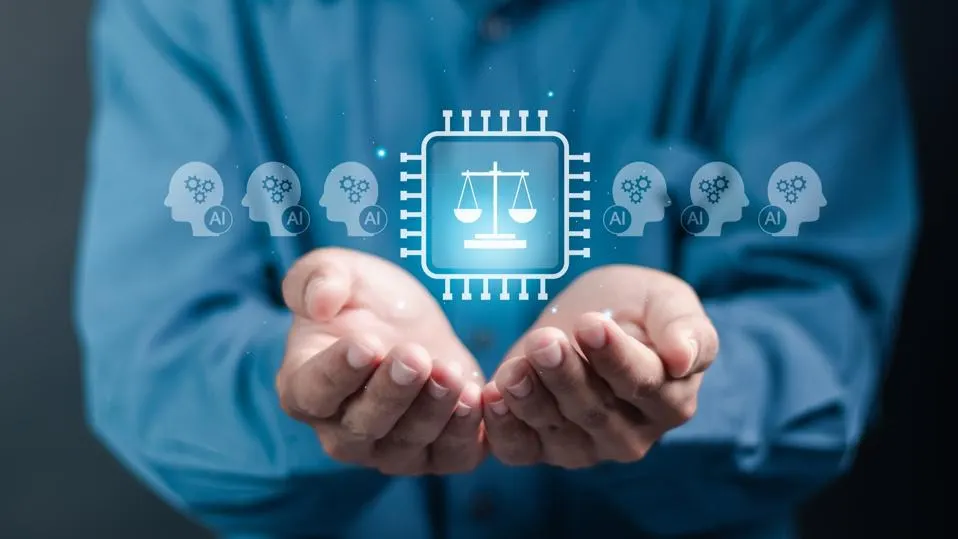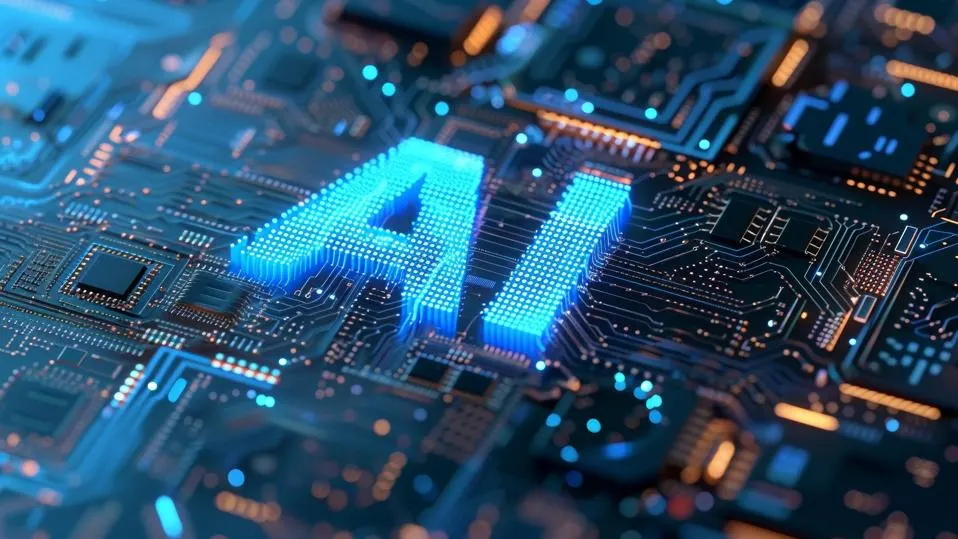Is The AI Bubble About To Burst?
19 August 2024
Following a turbulent few weeks in the stock market, there’s a lot of speculation that the AI “bubble” may be about to burst.
Many companies that are involved in AI have seen the value of their stock rocket dramatically over the past year or so. The most celebrated example is Nvidia, whose stock price has more than tripled since last summer. Others heavily invested in AI, such as Google and Microsoft, have also seen large increases.
Big leaps in stock price—particularly when they seem difficult to link to the generation of real value—are sometimes seen by analysts as an indicator that prices are due for a correction.
It’s hard to shake the feeling that we’ve seen all of this before. The hype and excitement around the newly emerged internet, which peaked in early 2000, was swiftly followed by the bursting of the “dot-com bubble.” Many companies went out of business, the economy experienced a significant downturn, and many jobs were lost.
So, is this a bubble? While it is said that AI could add around $15 trillion to the value of the global economy, recent earnings reports from the likes of Google and Tesla have been less than stellar, leading to the recent dips in share prices. At the same time, there are reports that the general public is becoming more distrustful of AI and that businesses are finding it difficult to make money from it.
Does this mean that the AI revolution—touted as holding the solution to problems as diverse as curing cancer and saving the environment—is about to come crashing down around our ears?
Personally, I don’t think so. But even if it does, in the long run, that might not even turn out to be a bad thing for AI adoption.

Is This 2000 All Over Again?
There are certainly striking similarities between what we are seeing today and the economic and market conditions that led up to the great dot-com bubble burst of 2000.
Both periods saw huge increases in stock prices and company valuations, seemingly driven by hopes and expectations for the future rather than tangible present-day results.
This has led to big stock indexes like the S&P 500, which heavily consists of tech stocks, mirroring the weighting of internet companies back at the turn of the century.
Just as was the case with the internet back then, all large companies are seeking to increase their valuations by leveraging their commitment to AI, with its promise of unlocking huge profits and growth further down the road.
However, there are also some very important differences. For a start, today’s AI leaders—companies like Microsoft, Nvidia, Alphabet and Meta—are already hugely profitable. They have proven business models and solid, reliable revenue streams that most likely won’t dry up even in the unlikely scenario that all of their AI plans fail.
This simply wasn’t the case for many of the hundreds of companies that failed when the dot-com bubble burst—most of which you’ve probably completely forgotten about by now.
With “all their eggs in one basket,” so to speak, they were just not set up to survive even a temporary dip in the market’s enthusiasm for the internet gold rush.
Things are very different today. Even if it turns out we’re not quite ready to make the leap to a fully automated, AI-driven society just yet, Google and Meta’s advertising services, Amazon’s shopping business and Tesla’s cars will keep those companies going until we are.
In addition, their huge user bases and vast amounts of proprietary data serve as protection against upstarts hoping to sneak in and launch competing AI services under their noses.
However, it's important to note that even these tech giants aren't immune to external pressures. The ongoing Google antitrust case, for instance, could have far-reaching implications not just for Google, but for other major players in the tech industry as well. Nvidia is already facing two separate antitrust probes from the U.S. Department of Justice, focusing on its acquisition of Run:ai and alleged anti-competitive practices in the AI chip market. These legal and regulatory challenges could potentially reshape the landscape for Big Tech's AI ambitions.
It's also worth mentioning that while the established tech companies have diversified revenue streams, there are newer players like OpenAI and Anthropic that are primarily focused on AI. Unlike many dot-com era startups, these AI-centric companies benefit from the support and partnerships of larger tech firms. Moreover, the AI startup landscape is less crowded than the dot-com boom, with fewer companies gaining significant traction. This more concentrated field of serious contenders might lead to a different outcome than we saw in the early 2000s.
So, Is It Safe For Me To Invest All My Money In AI Stocks?
First of all, nothing I say here should be taken as investment advice, as I am not a financial advisor by any means.
But here’s my opinion. It's clear that the hugely inflated valuations we've seen in the past year or two are indicative of a bubble; a correction could very well be on the cards and may even be underway right now.
Despite this, however, I believe the mid and long-term prospects for AI are incredibly strong. It certainly has the potential to be just as—if not more—transformative than the emergence of the internet in the late 20th century eventually proved to be.
I also believe that part of the reason we haven’t seen many companies achieving real tangible value with AI just yet is that many leaders still aren't prepared for the AI revolution. You can read more about my thoughts about that here.
As the dot-com bubble burst, the companies that didn’t survive were those that failed to think strategically about how the internet would impact their business and the opportunities it created.
Meanwhile, those that approached the internet not just as an opportunity to bring an existing business model online but as a way to radically rethink it from the ground up —Amazon, Google, and Netflix are just three of the most obvious examples—not only recovered but reached even greater heights.
This is why, even for a firm believer in the potential of AI like myself, acknowledging the likelihood that we are in a bubble of some sort and the fact that there could be some turbulence ahead is important.
Market corrections serve to remind us that the true, transformative potential of revolutionary advances like AI (or, indeed, the internet) lies in their practical applications and the real value they create rather than in speculative excitement and hype.
By refocusing our attention on genuine innovation and its tangible benefits, we become better equipped to recognize this value and make more informed decisions about our investments in the future of AI.
Related Articles
Will AI Solve The World’s Inequality Problem – Or Make It Worse?
We are standing on the cusp of a new technological revolution. AI is increasingly permeating every aspect of our lives, with intelligent machines transforming the way we live and work.[...]
How You Become Irreplaceable In The Age Of AI
In a world where artificial intelligence is rapidly advancing, many of us are left wondering: Will AI take our jobs?[...]
Why Apple Intelligence Sets A New Gold Standard For AI Privacy
In the rapidly evolving world of artificial intelligence, privacy concerns have become a hot-button issue.[...]
Can Your Device Run Apple Intelligence? What You Need To Know
Apple's announcement of Apple Intelligence has sent waves of excitement through the tech world.[...]
10 Amazing Things You Can Do With Apple Intelligence On Your IPhone
Apple Intelligence is poised to revolutionize the iPhone experience, offering a suite of AI-powered tools that promise to make your digital life easier, more productive, and more creative.[...]
Agentic AI: The Next Big Breakthrough That’s Transforming Business And Technology
The world of artificial intelligence is evolving at a breakneck pace, and just when you thought you'd wrapped your head around generative AI, along comes another game-changing concept: agentic AI.[...]
Sign up to Stay in Touch!
Bernard Marr is a world-renowned futurist, influencer and thought leader in the fields of business and technology, with a passion for using technology for the good of humanity.
He is a best-selling author of over 20 books, writes a regular column for Forbes and advises and coaches many of the world’s best-known organisations.
He has a combined following of 4 million people across his social media channels and newsletters and was ranked by LinkedIn as one of the top 5 business influencers in the world.
Bernard’s latest book is ‘Generative AI in Practice’.










Social Media